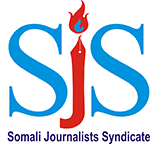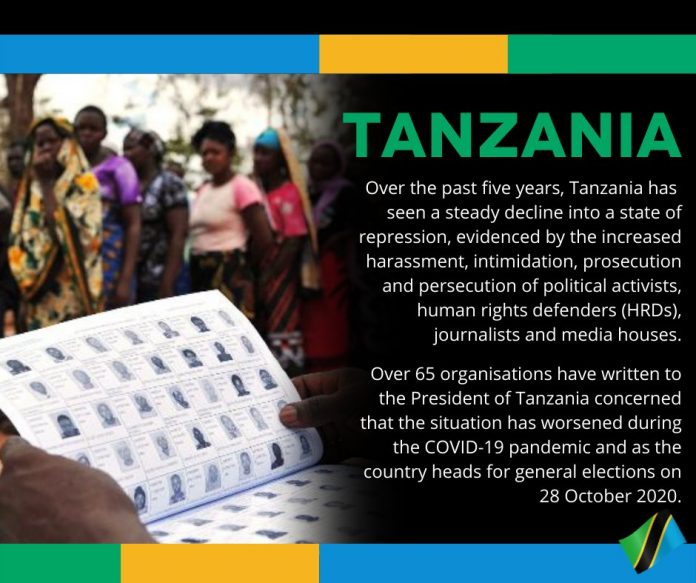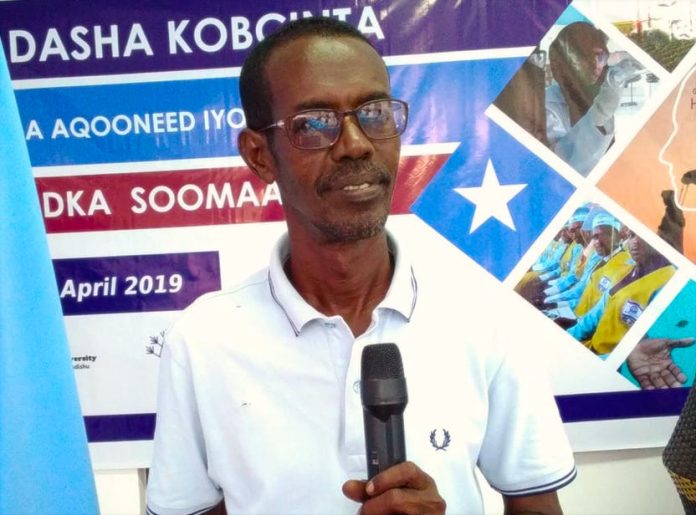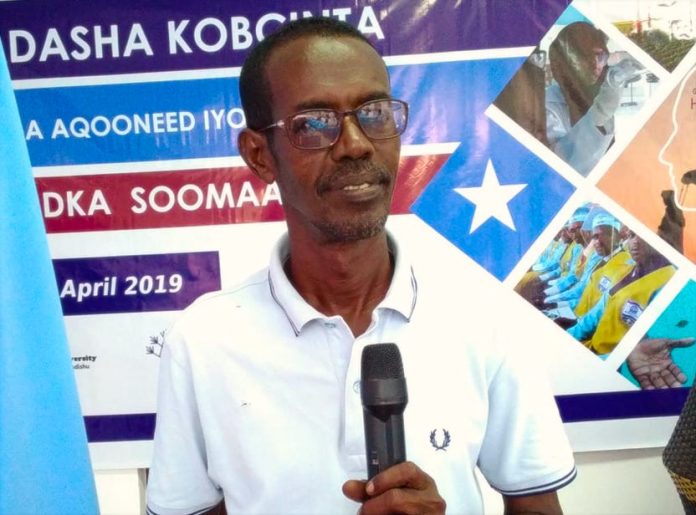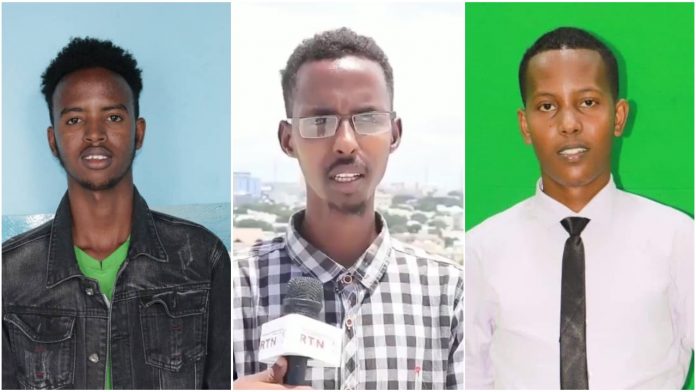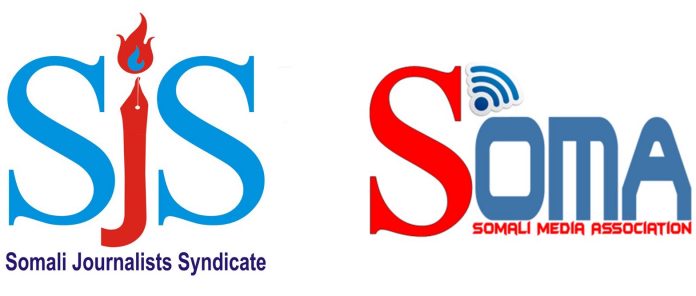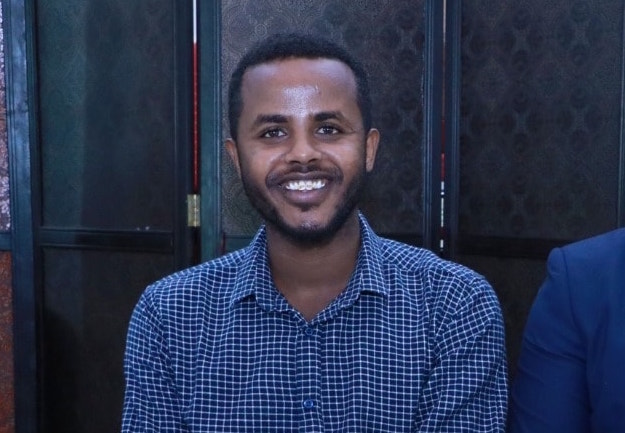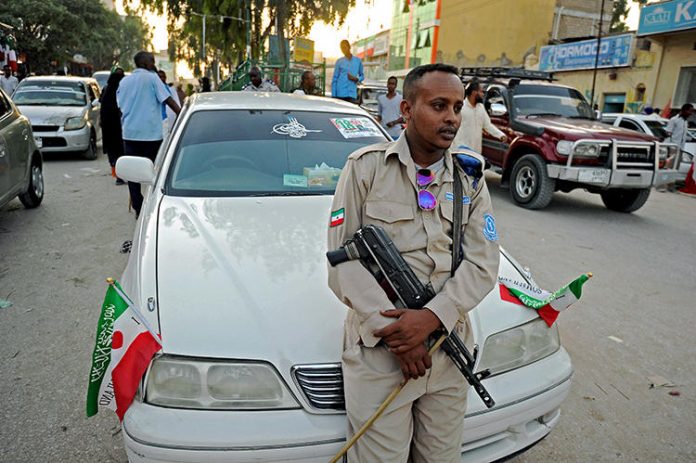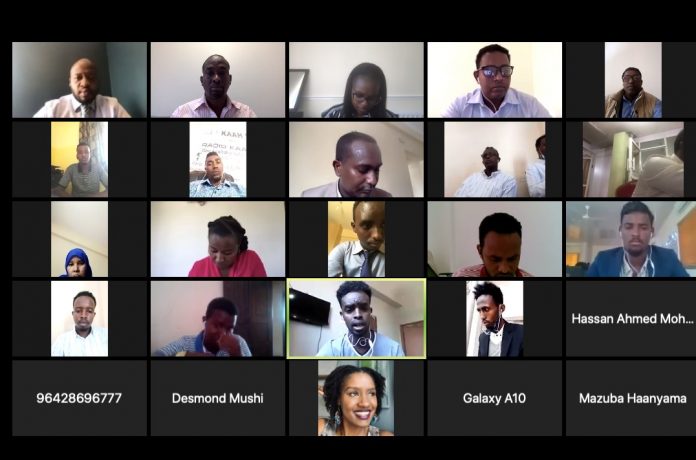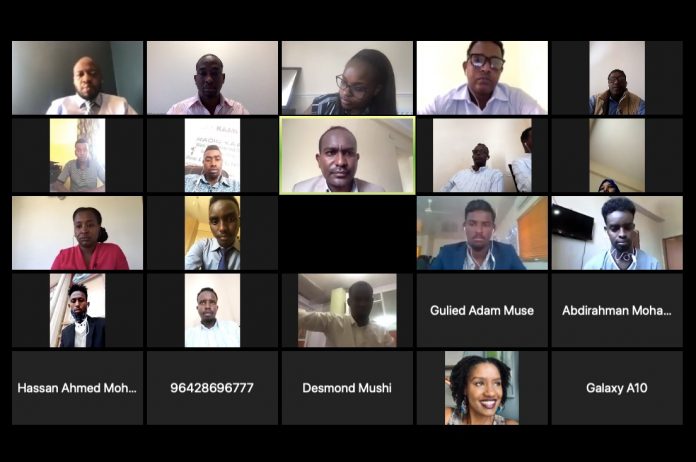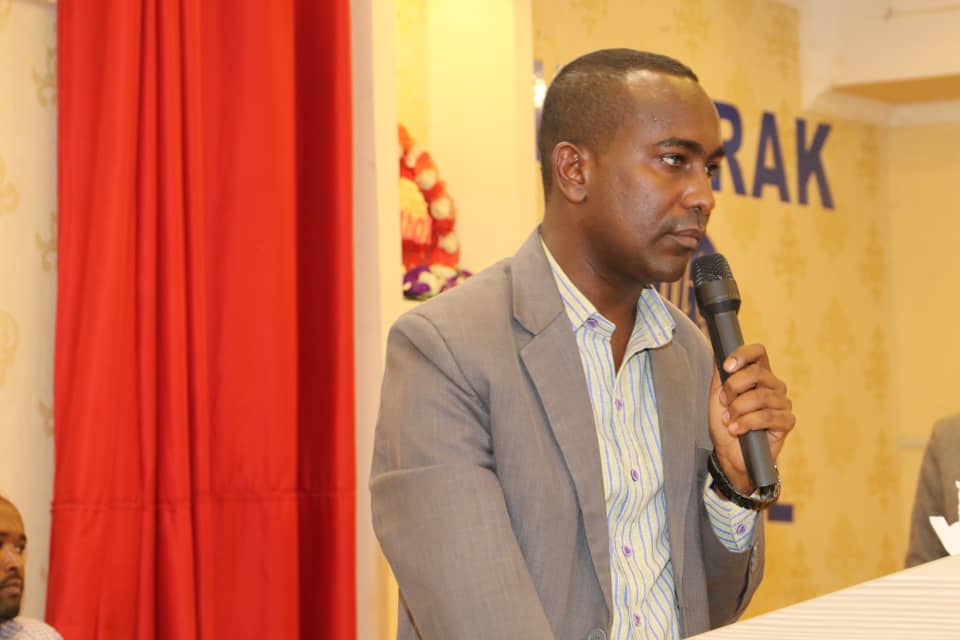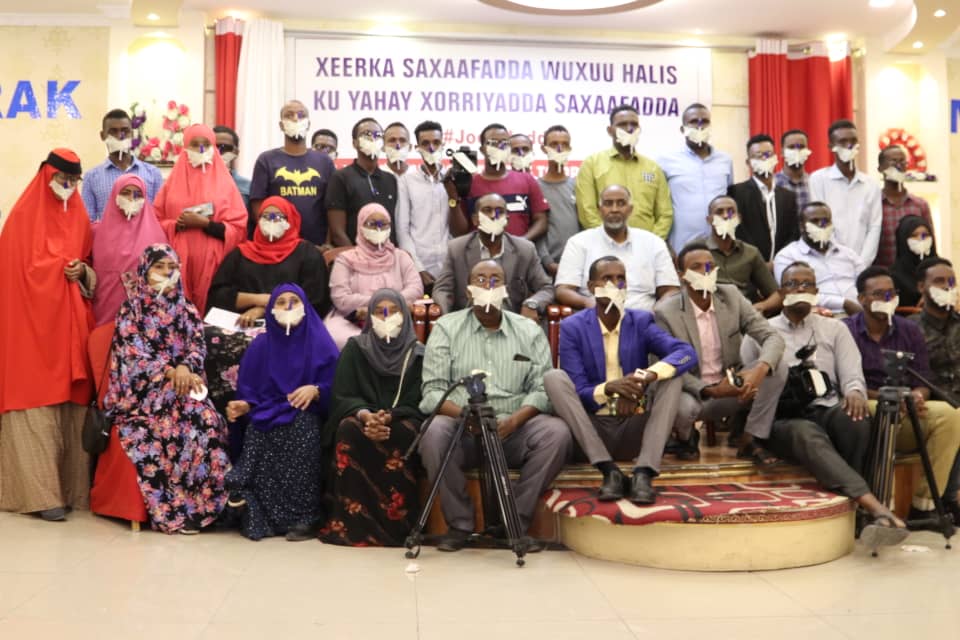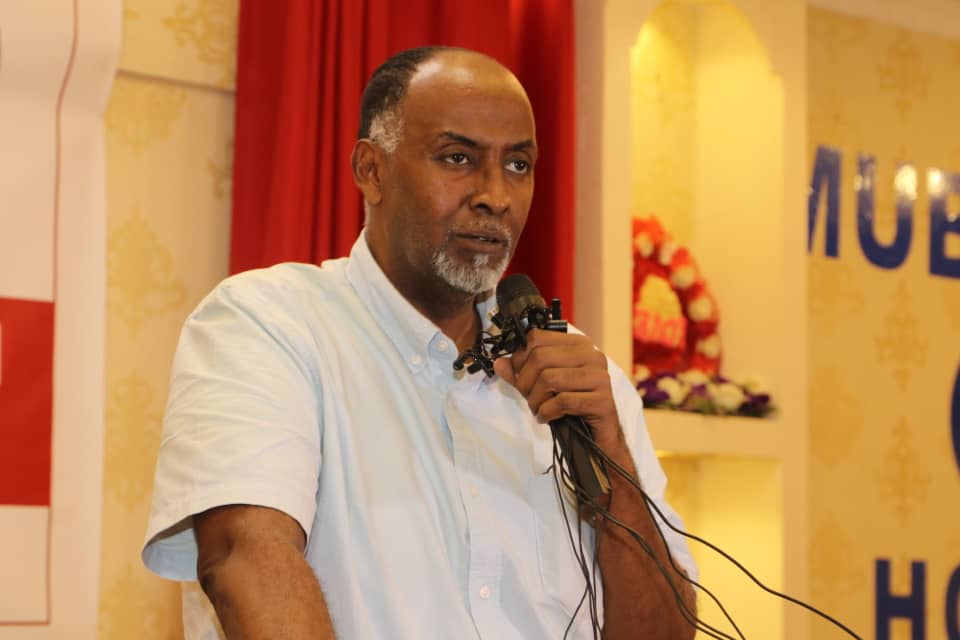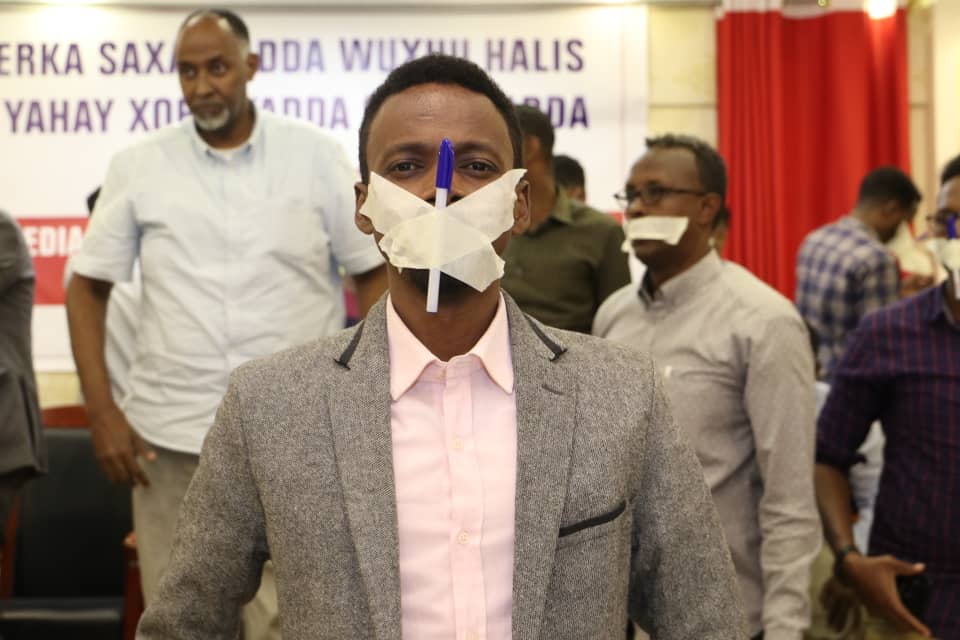To: President John Magufuli
Excellency,
We, the undersigned civil society organizations, are deeply concerned about the continued deterioration of democracy, human rights and rule of law in the United Republic of Tanzania. In the past five years, we have documented the steady decline of the country into a state of repression, evidenced by the increased harassment, intimidation, prosecution, and persecution of political activists, human rights defenders (HRDs), journalists and media houses; the enactment of restrictive laws; and disregard for rule of law, constitutionalism, as well as regional and international human rights standards. We are deeply concerned that the situation has worsened during the COVID-19 pandemic and as the country heads for general elections on 28 October 2020.[1]
Tanzania as a party to several regional and international treaties, including the International Covenant on Civil and Political Rights and the African Charter on Human and Peoples’ Rights, has a legal obligation to respect and protect fundamental rights, particularly the right to – freedom of expression and the media, peacefully assemble, form and join associations, and to participate in public affairs, which are fundamental rights for free and fair elections in a democratic society. As a member of the African Union (AU) and the Southern African Development Community (SADC), Tanzania has committed to uphold and promote democratic principles, popular participation, and good governance.
Leading up to the elections in Tanzania, we have unfortunately documented an unfavourable environment for public participation and free engagement in the political process. The role of the media in providing information and access to varying viewpoints in a true democracy is indispensable. Media houses must be allowed to provide these services without undue restrictions, yet in recent times, several independent media houses have been suspended. These have included the seven-day suspensions of The Citizen newspaper in February 2019,[2]Clouds TV and Clouds FM in August 2020, and the six-month suspension of Kwanza online TV in September 2019[3] and again in July 2020 for 11 months;[4] the online publication ban against Mwananchi news in April 2020;[5]the revocation, effective June 24, 2020, of the license of the Tanzania Daima newspaper;[6] and the fines against online stations, Watetezi TV and Ayo TV in September 2019.[7]We note, with great disappointment, that the government is yet to comply with a ruling by the East African Court of Justice requiring the amendment of the Media Services Act to address the unjustified restrictions on freedom of expression.[8]
We are further concerned about the restrictions on individuals peacefully expressing their opinions, including criticising public officials.[9] The latter are required to tolerate a greater amount of criticism than others – a necessary requirement for transparency and accountability. Tanzania’s criminal justice system has however been misused to target those who criticize the government. Tito Magoti and IT expert Theodory Giyani were arrested in December 2019 and questioned over their social media use and association with certain government critics.[10]The duo were subsequently charged with economic crimes, including “money laundering” which is a non-bailable offence. Despite their case being postponed more than 20 times since December 2019, and no evidence being presented against them, they remain in pre-trial detention.[11] Investigative journalist Erick Kabendera was similarly arrested and charged with “money laundering” where he was held in pre-trial detention for seven months with his case postponed over ten times.[12] Several United Nations (UN) mandate holders have raised concern about the misuse of the country’s anti-money laundering laws that “allow the Government to hold its critics in detention without trial and for an indefinite period.”[13]
Most recently, a prominent human rights lawyer and vocal critic of the government, Fatma Karume was disbarred from practising law in Tanzania following submissions she made in a constitutional case challenging the appointment of the Attorney General.[14] Other lawyers are also facing disciplinary proceedings for publicly raising issues on judicial independence and rule of law. Opposition leader, Zitto Kabwe was arrested and prosecuted for statements made calling for accountability for extrajudicial killings by State security agents.[15] The above cases are clear evidence of intolerance for alternative views and public debate.
In addition, authorities should ensure respect for the right of individuals to freely form associations and for those associations to participate in public affairs, without unwarranted interference. We note the increasing misuse of laws to restrict and suspend the activities of civil society organisations.[16] On August 12, Tanzania Human Rights Defenders Coalition (THRDC) was notified that its bank accounts had been frozen pending police investigations. THRDC’s coordinator was then summoned by the police to explain an alleged failure to submit to the State Treasury its contractual agreements with donors.[17] Prior to this, in June 2020, the authorities disrupted the activities of THRDC for allegedly contravening “laws of the land.”[18] Several other non-governmental organisations working on human rights issues have been deregistered or are facing harassment for issuing public statements critical of the government. Ahead of the elections some civil society organisations have reported being informally told by authorities to cease activities. As a result of the repressive environment, civil society organisations have been forced to self-censor activities.
We also note the enactment of further restrictive laws.[19] For example, the Written Laws Miscellaneous Amendments Act (The Amendment Act)[20] which has introduced amendments to 13 laws.[21] The Amendment Act requires anyone making a claim for violation of rights to have been personally affected.[22] This limits the ability of civil society organisations to carry out legal aid and law-based activities where they are not personally harmed. It violates Article 26(2) of the country’s Constitution, which provides for the right of every person “to take legal action to ensure the protection of this Constitution and the laws of the land.” Furthermore, it is an internationally recognized best practice that all persons, whether individually or in association with others, have the right to seek an effective remedy before a judicial body or other authority in response to a violation of human rights.[23] The Amendment Act further provides that lawsuits against the President, Vice-President, Prime Minister, Speaker, Deputy Speaker, or Chief Justice cannot be brought against them directly but must be brought against the Attorney General.[24] This provision undermines government accountability for human rights violations. We remind the authorities that international bodies have raised concerns about Tanzania’s repressive laws.[25]
We are especially concerned over the continued cases of verbal threats and physical attacks against members of opposition political parties.[26] We note with concern that to date, no one has been held accountable for the 2017 attack against the CHADEMA party leader, Tundu Lissu, who is a presidential candidate in the upcoming elections. Most recently, opposition leader Freeman Mbowe was brutally attacked and his assailants are still at large. Failure to thoroughly and impartially investigate such cases breeds a culture of violence and impunity, which in turn threatens the peace and security of the country. The government must take steps to bring perpetrators of such violence to account and to guarantee the safety of all other opposition party members and supporters.
Earlier, in November 2019, the African Commission on Human and Peoples’ Rights (ACHPR) issued a press statement on the “deteriorating human rights situation in Tanzania.”[27] The Commission specifically voiced concern over “the unprecedented number of journalists and opposition politicians jailed for their activities.” The ongoing crackdown on civic space in Tanzania also led the UN High Commissioner for Human Rights, Michelle Bachelet, to issue a strong warning ahead of the 28 October 2020 General Elections. At the opening of the UN Human Rights Council’s 45th session, she “[drew] the Council’s attention to increasing repression of the democratic and civic space, in what is becoming a deeply deteriorated environment for human rights” and stressed that “[with] elections approaching later this month, we are receiving increasing reports of arbitrary arrests and detention of civil society actors, activists, journalists and members of opposition parties.” She added: “Further erosion of human rights could risk grave consequences, and I encourage immediate and sustained preventive action.”[28]
While we acknowledge measures taken by your government to halt the spread of the COVID-19 virus and protect the citizens of Tanzania, we are deeply concerned that the pandemic has been used to unduly restrict fundamental freedoms. Examples are the arrest and sentencing of two Kenyan journalists for interviewing members of the public in Tanzania on the status of the pandemic in the country[29] as well as, the suspension of Kwanza Online TV for reposting an alert by the U.S. embassy in Tanzania regarding the pandemic in the country.[30] The rights to peacefully express one’s opinion, receive information, peaceful assembly and association, and to participate in public affairs are not only essential in the context of the upcoming elections, but also in relation to the current COVID-19 pandemic. Freedom of expression in particular, ensures “the communication of information to the public, enabling individuals to … develop opinions about the public health threat so that they can take appropriate steps to protect themselves and their communities.”[31] The UN has repeatedly emphasized that Government responses to COVID-19 must not be used as a pretext to suppress individual human rights or to repress the free flow of information.[32]
The need for Tanzania to uphold human rights, democracy and the rule of law is now more than ever important as a matter of national security, following recent reports of insurgent attacks along Tanzania’s border with Mozambique.[33] Studies have shown that experiences of injustice, marginalization and a breakdown in rule of law, are root causes of disaffection and violence. A peaceful and prosperous nation requires good governance and respect for rule of law, with a society that protects fundamental freedoms and ensures justice for all.
As civil society organisations deeply concerned about constitutionalism, justice, and democracy in the United Republic of Tanzania, we strongly urge your Excellency to adhere to your undertaking to ensure a free and fair election in Tanzania. The government has an obligation to create an enabling environment for everyone, including political opposition, non-governmental organisations, journalists, and other online users, HRDs, and other real or perceived government opponents to exercise their human rights without fear of reprisals. As such, we call on the relevant authorities to immediately drop criminal charges and release defenders such as Tito Magoti and Theodory Giyani and any others being prosecuted for peacefully exercising their rights. Suspensions and the freezing of assets of non-governmental organisations such as THRDC, independent media houses such as Kwanza Online TV, and members of the legal profession- particularly Fatma Karume, must be reversed. Opposition parties must be allowed to freely and peacefully campaign and engage with their supporters without undue restrictions such as arbitrary arrests, physical attacks, forceful dispersal and intimidation of supporters, and harassment by security forces. The legitimacy of Tanzania’s elections is at stake.
We call on Tanzania to heed the messages delivered by national, African, and international actors and to change course before the country enters a full-fledged human rights crisis, with potentially grave domestic and regional consequences.
Signed:
- Access Now, Global
- Acción Solidaria on HIV/aids, Venezuela
- Africa Freedom of Information Centre
- Africa Judges and Jurists Forum
- AfroLeadership
- ARTICLE 19, Global
- Asia Dalit Rights Forum (ADRF), New Delhi and Kathmandu
- Association for Human Rights in Ethiopia (AHRE)
- Association of Freelance Journalists
- BudgIT Foundation, Nigeria
- CEALDES, Colombia
- Center for Civil Liberties, Ukraine
- Centre for Human Rights & Development (CHRD), Mongolia
- Centre for Law and Democracy, Canada
- Center for National and International Studies, Azerbaijan
- Child Watch, Tanzania
- CIVICUS, Global
- Civic Initiatives, Serbia
- CIVILIS Human Rights, Venezuela
- Collaboration on International ICT Policy for East and Southern Africa (CIPESA)
- Committee to Protect Journalists (CPJ)
- Community Empowerment for Progress Organization (CEPO), South Sudan
- Commonwealth Human Rights Initiative (CHRI)
- Corporación Comuna Nueva, Santiago de Chile
- DefendDefenders (East and Horn of Africa Human Rights Defenders Project)
- Democracy Monitor PU, Azerbaijan
- Eastern Africa Journalists Network (EAJN)
- Ethiopian Human Rights Council (EHRCO)
- Ethiopian Human Rights Defenders Coalition (EHRDC)
- Espacio Público, Venezuela
- Front Line Defenders, Global
- Gestos (HIV and AIDS, communication, gender), Brazil
- Greenpeace Africa
- Groupe d’Action pour le Progrès et la Paix (GAPP-Afrique), Canada
- Groupe d’Action pour le Progrès et la Paix (GAPP-BENIN)
- Groupe d’Action pour le Progrès et la Paix (GAPP Mali)
- HAKI Africa, Kenya
- Human Rights Concern – Eritrea (HRCE)
- Human Rights Defenders Network, Sierra Leone
- Humanium, Switzerland
- HuMENA for Human Rights and Civic Engagement (HuMENA Regional)
- International Partnership for Human Rights (IPHR) – Belgium
- Jade Propuestas Sociales y Alternativas al Desarrollo, A.C. (JADESOCIALES)- México
- Ligue Burundaise des droits de l’homme Iteka-Burundi
- Maison de la Société Civile (MdSC), Bénin
- MARUAH, Singapore
- Media Rights Agenda (MRA), Nigeria
- Nigeria Network of NGOs, Nigeria
- Nouvelle Dynamique de la Société Civile de la RD Congo (NDSCI)
- Odhikar, Bangladesh
- ONG Convergence des Actions Solidaires et les Objectifs de Développement Durable (CAS-ODD ONG) – Bénin
- ONG Nouvelle Vision (NOVI), Bénin
- Open School of Sustainable Development (Openshkola), Russia
- Open Society Initiative for Southern Africa (OSISA)
- Partnership for Peace and Development, Sierra Leone
- RESOSIDE, Burkina Faso
- Robert F. Kennedy Human Rights, Global
- Sisters of Charity Federation, United States
- Somali Journalists Syndicate (SJS), Somalia
- Southern Africa Human Rights Defenders Network (SAHRDN)
- Sudanese Development Initiative (SUDIA), Sudan
- The Human Rights Centre Uganda (HRCU), Uganda
- Tournons La Page (TLP)
- Water, Sanitation and Hygiene Network, Sierra Leone
- Women in Democracy And Governance, Kenya (WIDAG)
- Zambia Council for Social Development, Zambia
–
[1] United Nations, Office of the High Commissioner, UN Experts call on Tanzania to end the crackdown on civic space, July 22, 2020, available at https://www.ohchr.org/en/NewsEvents/Pages/DisplayNews.aspx?NewsID=26117&LangID=E.
[2] Committee to Protect Journalists, Tanzania imposes 7-day publication ban on The Citizen, March 01, 2019, available at https://cpj.org/2019/03/tanzania-citizen-7-day-publication-ban/
[3] Committee to Protect Journalists, Tanzanian authorities ban online TV station, fine 2 others, January 8, 2020, available at https://cpj.org/2020/01/tanzanian-authorities-ban-online-tv-station-fine-2/
[4] Committee to Protect Journalists, Tanzania bans Kwanza Online TV for 11 months citing ‘misleading’ Instagram post on COVID-19, July 09, 2020, available at https://cpj.org/2020/07/tanzania-bans-kwanza-online-tv-for-11-months-citing-misleading-instagram-post-on-covid-19/
[5] Committee to Protect Journalists, Tanzanian newspaper banned from publishing online for 6 months over COVID-19 report, May 11, 2020, available at https://cpj.org/2020/01/tanzanian-authorities-ban-online-tv-station-fine-2/
[6] Committee to Protect Journalist, Tanzanian government revokes license of Tanzania Daima newspaper, June 26, 2020, available at https://cpj.org/2020/06/tanzanian-government-revokes-license-of-tanzania-daima-newspaper/
[7] Committee to Protect Journalists, Tanzanian authorities ban online TV station, fine 2 others, January 8, 2020 available at https://cpj.org/2020/01/tanzanian-authorities-ban-online-tv-station-fine-2/
[8]Committee to Protect Journalists, East Africa court rules that Tanzania’s Media Services Act violates press freedom, March 28, 2019, available at https://www.mediadefence.org/news/important-media-freedom-judgment-east-african-court-justice
[9] We refer to cases such as the arrest of prominent comedian, Idris Sultan, in May 2020 (https://thrdc.or.tz/tanzanian-comedian-and-actor-mr-idris-sultan-charged-for-failure-to-register-a-sim-card/), and the disbarment from practicing law of prominent lawyer and human rights advocate, Fatma Karume (https://www.icj.org/tanzania-icj-calls-for-reinstatement-of-lawyer-fatma-karumes-right-to-practice-law/).
[10] Committee to protect journalists, Mwanachi, The Citizen, last seen in Tanzania, November 21, 2017, available at https://cpj.org/data/people/azory-gwanda/.
[11] American Bar Association, Center for Human Rights, Tanzania: Preliminary Analysis of the criminal case against Tito Magoti and Theodory Giyani, July 28, 2020, available at https://www.americanbar.org/groups/human_rights/reports/tanzania–preliminary-analysis-of-the-criminal-case-against-tito/.
[12] Committee to Protect Journalists, Tanzanian journalist Erick Kabendera freed but faces hefty fines, February 24, 2020, available at https://cpj.org/2020/02/tanzanian-freelancer-erick-kabendera-freed-but-fac/
[13] Mandates of the Special Rapporteur on the situation of human rights defenders; the Working Group on Arbitrary Detention; the Working Group on Enforced or Involuntary Disappearances; the Special Rapporteur on the promotion and protection of the right to freedom of opinion and expression; and the Special Rapporteur on the rights to freedom of peaceful assembly and of association, Letter to President of Tanzania, Reference AL TZA 1/2020, January 31, 2020, available at https://spcommreports.ohchr.org/TMResultsBase/DownLoadPublicCommunicationFile?gId=25049.
[14] International Commission of Jurists, Tanzania: ICJ Calls for the reinstatement of lawyer Fatma Karume’s right to practice law, October 8, 2020, available at https://www.icj.org/tanzania-icj-calls-for-reinstatement-of-lawyer-fatma-karumes-right-to-practice-law/
[15]The Citizen, Zitto Kabwe sentenced to serve one year ban not writing seditious statements, May 29, 2020, available at https://www.thecitizen.co.tz/news/Zitto-Kabwe-found-guilty-of-sedition/1840340-5567040-m7pifrz/index.htm
[16] The cancellation of a training organised by Tanzania Human Rights Defenders Coalition (THRDC), the subsequent arrest of THRDC’s Director, Onesmo Olengurumwa, and suspension of the activities of the organisation, as well as freezing of their accounts, exemplifies the misuse of these laws against civil society (See: https://www.aa.com.tr/en/africa/tanzania-human-rights-group-suspends-operations/1945400)
[17] DefendDefenders, Tanzania: Respect the right to freedom of association, August 24, 2020, available at https://defenddefenders.org/tanzania-respect-the-right-to-freedom-of-association/.
[18] Two employees of one of THRDC were arrested in Dar es Salaam and thereafter authorities proceed to arbitrarily cancel the hosting of a three-day security training for 30 human rights defenders. The police claimed that the training was in contravention of the “laws of the land” but did not give a specific provision
[19] These include the Electronic and Postal Communications (Online Content) Regulations; Media Services Act; Cybercrimes Act; and Political Parties Amendment Act.
[20] Written Laws (Miscellaneous Amendments Act (No. 3) of 2020)
[21] Southern Africa Litigation Center, Joint letter, The Written Laws Miscellaneous Amendments Act no.3 ( 2020), available at https://www.southernafricalitigationcentre.org/wp-content/uploads/2020/08/Honourable-Minister-of-Justice-for-the-Republic-of-Tanzania.pdf-August-2020.pdf
[22] Section 7(b) of the Written Laws Amendments Act
[23] The African Commission’s Principles and Guidelines on the Right to a Fair Trial and Legal Assistance in Africa provide that States must ensure through the adoption of national legislation that any individual, group of individuals or nongovernmental organization is entitled to bring a human rights claim before a judicial body for determination because such claims are matters of public concern.
[24] Amendments to Chapter 310 of the Law Reform (Fatal accidents and miscellaneous provisions) Act and to the Chapter 3 of the Basic Rights and Duties Enforcement Act
[25] See for example communication of the Mandates of the Special Rapporteur on the promotion and protection of the right to freedom of opinion and expression; and the Special Rapporteur on the rights to freedom of peaceful assembly and of association to the government of the United Republic of Tanzania, AL TZA 3/2020, 17 July 2020, https://spcommreports.ohchr.org/TMResultsBase/DownLoadPublicCommunicationFile?gId=25442
[26] These include the verbal abuse and threats of execution against Zitto Kabwe, leader of Alliance for Change and Transparency (ACT) Wazalendo opposition party (see: https://www.bbc.com/news/world-africa-51355148), his conviction for sedition for statements he made at a press conference in relation to alleged extra judicial killings by state security forces (https://www.thecitizen.co.tz/news/Zitto-Kabwe-found-guilty-of-sedition/1840340-5567040-m7pifrz/index.html), and his re-arrested together with several party members while they participated in an internal meeting (https://www.aljazeera.com/news/2020/06/24/tanzanian-opposition-leader-zitto-kabwe-released-on-bail/); as well as the conviction of nine Members of Parliament belonging to the opposition Chama Cha Demokrasia(CHADEMA) party and their sentencing in March 2020 to five months in prison or an alternative fine, for allegedly making seditious statements (https://www.reuters.com/article/us-tanzania-politics/tanzanian-opposition-lawmakers-found-guilty-of-making-seditious-statements-idUSKBN20X2O8); and the attack against the party leader, Freeman Mbowe, by unknown assailants leaving him with a broken leg (https://www.reuters.com/article/us-tanzania-politics/tanzanian-opposition-lawmakers-found-guilty-of-making-seditious-statements-idUSKBN20X2O8).
[27] African Commission on Human and Peoples’ Rights, Press statement of the African Commission on Human and Peoples’ Rights on the deteriorating human rights situation in Tanzania, available at https://www.achpr.org/pressrelease/detail?id=459.
[28] Office of the UN High Commissioner for Human Rights, “In her global human rights update, Bachelet calls for urgent action to heighten resilience and protect people’s rights,” 14 September 2020, https://www.ohchr.org/EN/NewsEvents/Pages/DisplayNews.aspx?NewsID=26226&LangID=E
[29] Tanzania Human Rights Defenders Coalition, Two Kenyan Journalists convicted and fined in Tanzania, repatriated back to Kenya, May 21, 2020, available at https://thrdc.or.tz/blog/.
[30]American Bar Association, Center for Human Rights, Report on the arbitrary suspension of Kwanza Online TV for sharing information related to the COVID-19 pandemic, October 22, 2020. See also Kwanza TV Instagram, available athttps://www.instagram.com/p/CCGT_5ECT_n/?utm_source=ig_web_button_share_sheet
[31] Disease pandemics and the freedom of opinion and expression, A/HRC/44/49, para. 30
[32] The Guardian, Coronavirus pandemic is becoming a human rights crisis, UN warns, 23 April 2020, available at https://www.theguardian.com/world/2020/apr/23/coronavirus-pandemic-is-becoming-a-human-rights-crisis-un-warns. See also UNHRC,, UN Special Rapporteur on freedom of peaceful assembly and of association, States responses to Covid 19 threat should not halt freedoms of assembly and association, April 14, 2020, available at https://www.ohchr.org/EN/NewsEvents/Pages/DisplayNews.aspx?NewsID=25788&LangID=E.
[33] BBC, Tanzania border village attack “leaves 20 dead”, October 16, 2020, available at https://www.bbc.com/news/live/world-africa-47639452?ns_mchannel=social&ns_source=twitter&ns_campaign=bbc_live&ns_linkname=5f896f00c4548e02bf3cb441%26Tanzania%20border%20village%20attack%20%27leaves%2020%20dead%27%262020-10-16T10%3A29%3A29.229Z&ns_fee=0&pinned_post_locator=urn:asset:2f81fc88-030c-49d4-9d25-b8268a2dbf55&pinned_post_asset_id=5f896f00c4548e02bf3cb441&pinned_post_type=share
